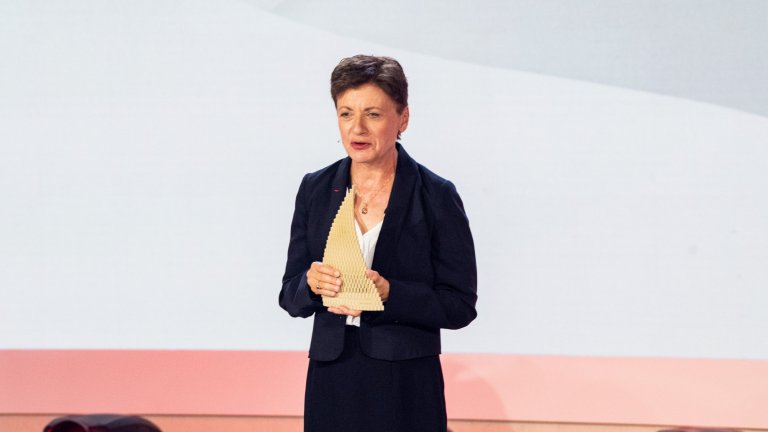
© © European Patent Office
Scientific news
The chemist, Claude Grison, a specialist in bio-inspired chemistry, which uses plants to fight against pollution, was awarded the European Inventor Award 2022 in the “Research” category. Let’s take a look at her amazing story.

© © European Patent Office
Using plants to clean up soil, particularly on former mining sites: the idea seems simple, but it still had to be thought of, and more importantly, be developed, refined, implemented and studied further. And this is where we are now, after years and years of research, where we are able to exploit the polluting metals that these plants have absorbed to produce molecules with many applications, from medicine to cosmetics…
This is a remarkable French success story and is down to Claude Grison, a CNRS Research Director and Director of the ChimEco laboratory, who recently won the European Inventor Prize 2022 in the “Research” category. This is a new achievement for a woman who had already been awarded the CNRS Innovation Medal in 2014 and whose start-up Bio Inspir’ is a role model in the field of green chemistry.
You can now revisit her profile and research, mainly through a photo report made in the field and her laboratory, ChimEco, in the Hérault region.
Our work is guided by the way scientists question the world around them and we translate their research into images to help people to understand the world better and to awaken their curiosity and wonderment.